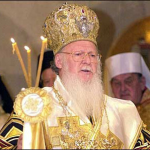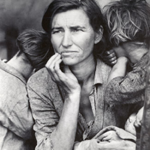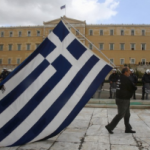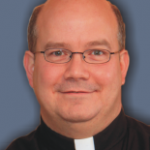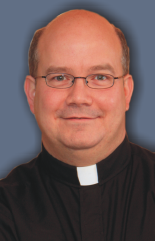
Deprecated: trim(): Passing null to parameter #1 ($string) of type string is deprecated in /home/aoiusa/public_html/wp-content/plugins/sexybookmarks/public.php on line 388
Deprecated: trim(): Passing null to parameter #1 ($string) of type string is deprecated in /home/aoiusa/public_html/wp-content/plugins/sexybookmarks/public.php on line 394
Deprecated: trim(): Passing null to parameter #1 ($string) of type string is deprecated in /home/aoiusa/public_html/wp-content/plugins/sexybookmarks/public.php on line 400
 Source: Acton Institute | John Couretas
Source: Acton Institute | John Couretas
At a World Council of Churches conference last year on the French-Swiss border, much was made of the “likelihood of mass population displacement” driven by climate change and the mass migration of people fleeing zones inundated by rising seas. While the WCC acknowledged that “there are no solid estimates” about the likely numbers of what it called climate refugees, that didn’t stop assembled experts from throwing out some guesses: 20 million, hundreds of millions, or 1 billion people.
The WCC bemoaned the fact that international bodies looking at the impending climate refugee crisis were not taking it seriously and, despite its own admission that the numbers of refugees were impossible to predict, called on these same international bodies to “put forward a credible alternative.”
The WCC did a thought experiment on the problem:
What kind of adaptation is relevant to migration? Sea walls? Cities on stilts? New canal systems? We need to start now to construct this future world. But we also need to imagine what it will mean if we fail. Indeed, it seems increasingly short-sighted to assume we will avoid sea-level rise or manage adaptive measures, given the tortuously slow progress of negotiations to date. We need to imagine that millions will, one day not too far away, be on the move, and we need to start thinking now about the appropriate way to manage this eventuality.
The main problem with this sort of thinking from religious groups on climate issues is not the lack of scientific credibility, which is bad enough, but their own credulousness. They have been all too willing to embrace any and all dire forecasts of environmental destruction, so long as it fits into their apocalyptic narrative. Maybe it’s their taste for catastrophe of biblical proportions.
Remember when, in 2005, the United Nations Environment Programme (UNEP) declared that 50 million people could become environmental refugees by 2010, as they fled the effects of climate change? They’d rather you didn’t. It turns out that the climate refugee problem is only the latest disaster-movie myth to be shattered. AsianCorrespondent.com reported earlier this month that “a very cursory look at the first available evidence seems to show that the places identified by the UNEP as most at risk of having climate refugees are not only not losing people, they are actually among the fastest growing regions in the world.”
The fraudulent scare based on nonexistent climate refugees has no bearing whatsoever on the question of whether the Earth’s atmosphere is warming, what may cause the warming, or what we should do about it. It speaks rather to too many religious groups’ gullibility for theories that line up with their anti-market economics, which undergird their blind faith in environmental doom. This is the “eco-justice” school of thought, which sees the market as “asserting the supremacy of economy over nature.” When people are factored in to this ideology, they are always helpless victims, not creators of economic wealth that has the potential of wide benefits.
Because of these shrill and unfounded warnings of ecological collapse, religious leaders and those who look to them for guidance are increasingly tuning out on the climate change scare. A new survey of Protestant pastors shows that 60 percent disagree with the statement that global warming is real and man-made, up from 48 percent two years ago. These results are in line with an October 2010 Pew Research Center poll which showed that belief in human-caused global warming had declined to 59 percent, down from 79 percent in 2006. Cry wolf often enough and you’ll find yourself alone at the next climate refugee conference.
Religious leaders should celebrate Earth Day 2011 by showing more humility in the face of the exceedingly complex scientific, public policy, and political questions bound up in environmental stewardship. A good start would be to drop any attempt at interpreting deep climatological data, which like complex policy or economic questions, is outside the usual competency of seminary training. Instead, religious leaders should focus on advancing an understanding of environmental stewardship that has a place both for productive economic activity and the beauty of God’s creation — without the Manichean split.
The virtue of prudence should lead us all to do more to reduce destructive man-made effects on the environment, with an eye toward improving the overall health of the air, water, and land that sustains us. De-carbonizing the economy, over time and in an orderly fashion, without wrecking economic life that likewise sustains us, is the reasonable way to do that. A strong market economy that creates the sort of wealth that can lead to practicable and affordable energy alternatives, free of the waste, abuse and cronyism that accompany government subsidies, will get us to a cleaner future faster than more “expert” management from Washington, the UN, or the WCC.
So let’s drop the nonsense about building cities on stilts to house a billion climate refugees. No more scare tactics, please. Environmental stewardship is too important to leave it to those who would drive more of the faithful into apathy and disinterest with their rash and incredible predictions of ecological doom.
